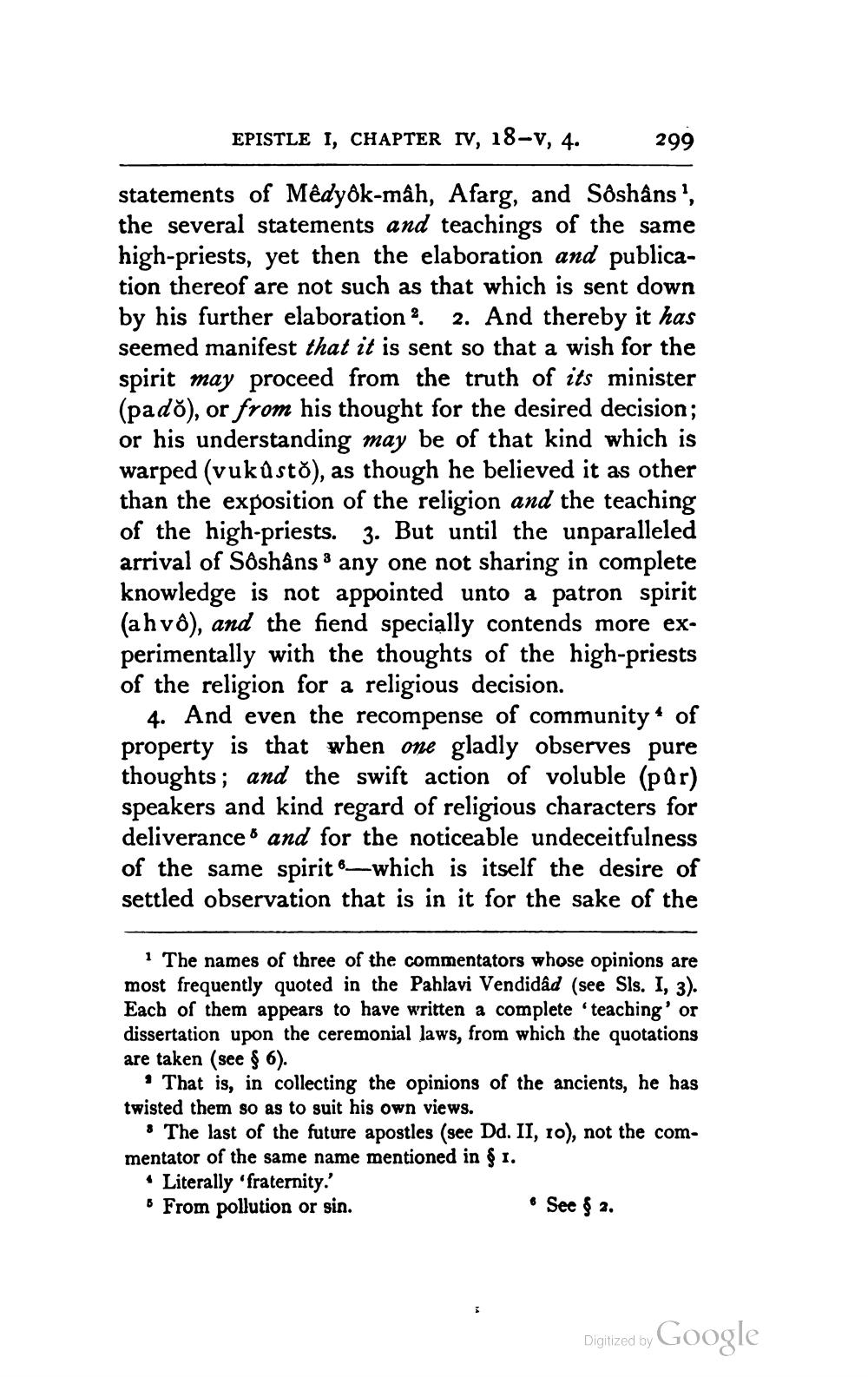________________
EPISTLE I, CHAPTER IV, 18-V, 4.
299
statements of Medyðk-mâh, Afarg, and Sôshậns , the several statements and teachings of the same high-priests, yet then the elaboration and publication thereof are not such as that which is sent down by his further elaboration 2. 2. And thereby it has seemed manifest that it is sent so that a wish for the spirit may proceed from the truth of its minister (pado), or from his thought for the desired decision; or his understanding may be of that kind which is warped (vuků stö), as though he believed it as other than the exposition of the religion and the teaching of the high-priests. 3. But until the unparalleled arrival of Sôshâns : any one not sharing in complete knowledge is not appointed unto a patron spirit (a hvô), and the fiend specially contends more experimentally with the thoughts of the high-priests of the religion for a religious decision.
4. And even the recompense of community of property is that when one gladly observes pure thoughts; and the swift action of voluble (par) speakers and kind regard of religious characters for deliverance and for the noticeable undeceitfulness of the same spirit which is itself the desire of settled observation that is in it for the sake of the
1 The names of three of the commentators whose opinions are most frequently quoted in the Pahlavi Vendidad (see Sls. I, 3). Each of them appears to have written a complete 'teaching' or dissertation upon the ceremonial laws, from which the quotations are taken (see $ 6).
. That is, in collecting the opinions of the ancients, he has twisted them so as to suit his own views.
• The last of the future apostles (see Dd. II, 10), not the commentator of the same name mentioned in $ 1.
· Literally "fraternity.' 6 From pollution or sin.
* See $ 2.
Digitized by Google




